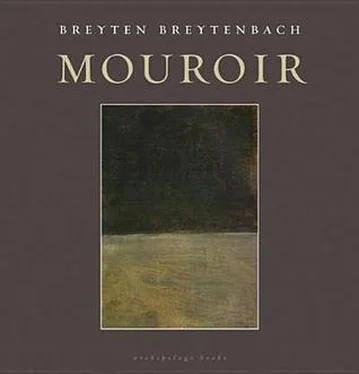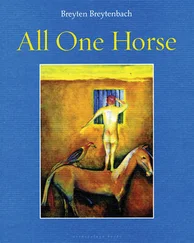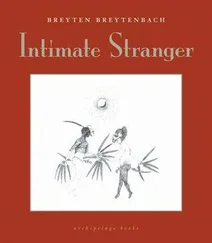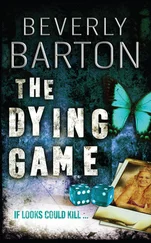His last wish is that his eyes should be donated to the blind jeweller. His eyes are of a shiny green colour, like the stones jewellers sometimes mount on silver for a bangle or a gorget. It is not known whether eyes too have memories — who can say for sure where sensory memories are situated? When one leaves one’s eyes to someone, doesn’t it in a way mean the grafting of one person on another? But an eye cannot be grafted — only the cornea under favourable circumstances. And, in any event, his last wish cannot be honoured since there is not sufficient time to comply with the required formalities in duplicate and triplicate.
When the day comes he is up early. He will not see the dawn because the forbidden place where fruit will be hung on the trees of knowledge of good and of evil is in the very same building. Neither the knife of day nor the cape of night are known there. Some detectives come to enquire whether he might not be amenable, for old times’ sake, to admitting his culpability for a series of unsolved murders. He pretends to be exclusive — as if each man were an exception. He will take many dead with him to the rot-hole. It is suspected that he may have polished off up to fifteen victims. . He is led down the tunnels by officers and a soul-stroker. The song has already taken the Unwhites up, through the same corridors, ahead of him. At last, after whiling away so many months in the waiting rooms and the outer sanctums, purified and prepared, he will now enter the secret and sacred circle. Another hell is to be wiped out; a new one may be opened. Cause and effect continue. But he is no longer the man he was eighteen months ago.
In the preparatory room he greets the warders one by one by hand. The lines in the hand-palms are laid over one another; there is a touching, a crossing, a knotting of fingers. Night-flies meeting, parting. He claims he will meet them all again “up there”. Here there is the aroma of sweetness although the night is icy-cold. He is given his blood and shackles. Now he is the minotaur.
The mother is already waiting on her knees in the undertaker’s hall where the box with the rests, the shell of the sacrifice of atonement, will be brought: at her request the family will take care of the burial. What the gods don’t wish to eat will be fed to the earth. There is no more room between her hands. From her body something like a bleeding bubbles up, the reminiscence of a foetus, and breaks in her throat like the dark cooing of a dove.
He stands underneath the tree. Upwards, higher than the ceiling and than the roof ridge, is heaven; peace blue; stars have been incinerated by the light. A fish mirrors. The hangman, who has been leaning his head on folded hands, comes to adjust the rope, the umbilical cord. Exactly behind the ear the knot must lie, where the marrow, consciousness, the wire of light, grows into the skull. He follows to the last the cool movements of the executioner. The eye-flap is turned down. It is dark.
It is dark.
The trapdoor opened with a shudder running through the entire building. A door closing. A flame of lightning through a cloud. A knife slipping into the fatty layer below the ribcage. One heartbeat through all the tentacles, nets of silence, equilibrium-sticks and vein-sides of the body when you are shaken awake from the dark.
Outside the day. The sky a deep blue, purple nearly, the way it looks when seen through the porthole of a high-altitude aircraft or above very high silver-clean mountain peaks. The sun is a blinding thing, so ardent that you daren’t look at it to establish its shape. In the air nothing, no substance which may deflect the sword strokes. A sharp and clear cold, crumbly and yet glass hard. Breaths hang in limp tufty cloudlets from the lips. Somewhere snow or hail must have fallen, surely in the mountains, and that in summer.
(ii)
Once upon a time
not so long ago. .
One is loath to write too soon about something like the foregoing. You let the days pass you by although you’re aware of the fact that you’ll have to open the thing sooner or later. You allow the days to go hard in your throat. For it is like a contusion around the neck: first too tender to the touch, swollen with blood compressed in the capillaries; later the swelling goes down and the injured region becomes bluish purple; still later a yellowish blue and then a lighter yellow when it starts itching. Afterwards it is for a while still a scratchy place in the memory. And yet the matter must be disembowelled because we are the mirrors and mirrors have their own lives. Mirrors have a life too and that which gets caught in them continues existing there. Reality is a version of the mirror image. It is a literary phenomenon I’d like to point out to my colleagues: the ritual must be completed in us also. Before death points? Does death depend on us?
you hang the life
tied to death
until it dies
you drop life
gibbeted to death:
until death is.
Even though something can be inserted easily enough into the mirror, none of us knows precisely how and when it can be taken out again. Do mirrors have looking-glasses too, deeper layers, echoes perhaps incessantly sounding the fathomless? This is the result: the eye and the hand (the description) embroider the version of an event, the anti-reality without which reality never could exist — description is experiencing — I am part of the ritual. The pen twists the rope. From the pen he is hanged. . He hangs in the mirror. But where in reality he is separated — conceivable in spirit or vision and growth of flesh draped over humid bone — hanged, taken down, ploughed under — each of these steps remains preserved in the mirror. The mirror mummifies each consecutive instant, apparently never runs over, but ignores as far as we know all decay and knows for sure no time. (A mutation, yes. . ) He thus keeps on hanging and kicking in the remembrance. You only need to close the eyelids to see each detail before the eyes. And the writer just as the reader (because the reader is a mirror to the writer) can seemingly make nothing undone. He cannot reopen the earth, cannot set the snapped neck, cannot stuff the spirit back into the flesh and the light of life in the lusterless eyes full of sand, cannot straighten the mother’s back, cannot raise the assassinated, cannot reduce the man to a seed in the woman’s loins while a hot wind streams over the Coast.
Or can he?
Is that the second death?
(Shiva, as Nutaraya — King of the Dancers — has in his one right hand a drum which indicates sound as the first element of the unfolding/budding universe; the uppermost left hand holds a fire-tongue, element of the world’s final destruction: the soil is fire devouring the body to ashes, and brings repose, till the next time. The other arms represent the eternal rhythmical balance between life and death. The one foot rests on the devil of “Forgetfulness”, the other treads in the void, as is usual when dancing, and depicts, according to Heinrich Zimmer, “the never-ending flow of consciousness in and out of the state of ignorance”. Shiva, god of destruction, god of creation, et cetera. The heart is a mirror/The mirror is a heart.)
People on the mountains don’t worry about
mosquitoes in the plains, nor do the inhabitants
of Egypt about umbrellas.
SAUL BELLOW
When the new pope was elected, when smoke fluttered miraculously white above the chimneys near the Sistine Chapel, when the huddled masses on the enormous square before St Peter’s with its imposing dome by Michelangelo had stopped holding their breaths and mumbling, had cheered and wept and recited the prayers, were blessed by straggly hands in wide white sleeves, when the sun had lain down red as blood and had risen blood-red (despite Galileo), but it did not stand still in the heavens since that wasn’t called for, even then the College of Cardinals had not yet realized clearly on what a rare bird they’d imposed the mitre and crown, exactly whose finger they slipped the fish ring on and who they got to sit on the fisherman’s chair. That they were still to find out. With heartfelt regret and communal self-reproach, beating fists on the chest, yes, oh woe. Later, when regret comes too late. For Giovanni XXXV was an intransparent man. Gentle but a thorough worker, so he would be summed up by the majority of mankind. Gifted young priest he had been (from Flemish workers’ city), punctual, loyal; quickly making headway to bishop, to the Curia , subtle jurist charged with the elucidation of ecclesiastical disputes, nonce apostolique in Beijing at a stage when that crucible of the world started progressing beyond Communism as had been foreseen so much earlier by Mao, discreetly the purple of cardinal, and then — Papa! And nobody caught even a whiff of his idiosyncrasies. Perhaps, supposing they did know, it wouldn’t have mattered much, as the Church had after all been immunized to some extent against her more flamboyant and eccentric characters who, from the time of the Borgias and Farneses at least, were woven like gold embroidery through the history of the ages. But, had they in their wise counsel been able to see ahead, they would have made other provisions, or asked the Providence to provide for different arrangements.
Читать дальше












